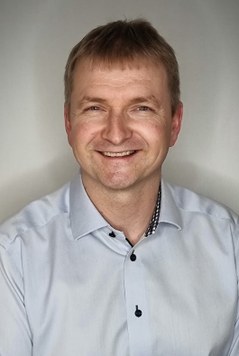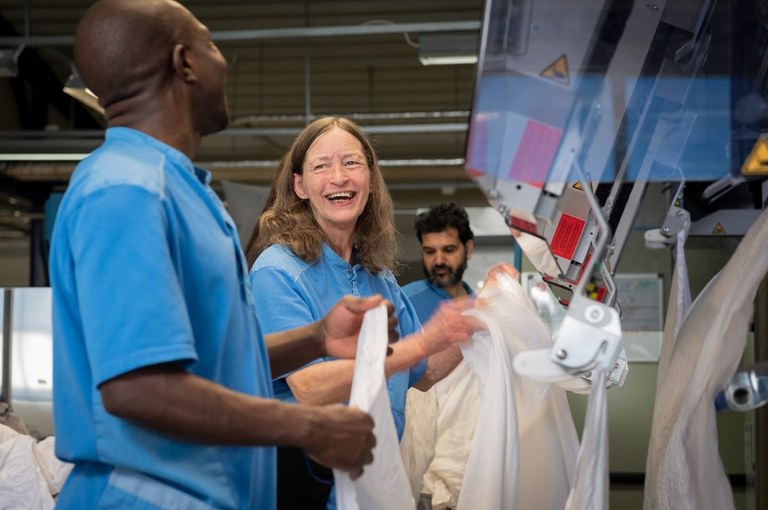Not easy for Norwegians to do the Swedes’ dirty laundry
It is not always easy to do business across Nordic borders when you are self-employed. It costs both time and money, as the owners of laundry service Trysil Vask og Rens experienced when daring to cross the border into Sweden.
Trysil Vask og Rens was established over 20 years ago. The industrial laundry service is one of several subsidiaries of Tepas AS, a company owned by Hedmark County Municipality and the municipalities of Trysil and Engerdal.
With its 30 employees, equivalent to 20 full-time positions, the laundry offers washing and dry cleaning services to private customers and businesses in Trysil, as well as in the surrounding areas.
For those who do not know: Trysil is only 40 kilometres from the Swedish border, and from there, you only travel 30 kilometres to reach the town of Sälen. So 70 kilometres in all – not very far by car.
The complicated border
Just like Trysil, Sälen is a well-known winter sports destination, home to the starting point of the world’s largest cross-country ski race Vasaloppet.
And while Norwegians, especially those living in Trysil, enjoy talking about Trysil being Norway’s biggest alpine ski resort with a huge range of activities, they are less likely to mention the fact that Sälen is a considerably bigger ski destination than Trysil.
 We shall put that particular conflict aside, because the point of this story is that for some businesses in Trysil, Sälen is an interesting market. That includes Trysil Vask og Rens.
We shall put that particular conflict aside, because the point of this story is that for some businesses in Trysil, Sälen is an interesting market. That includes Trysil Vask og Rens.
“We were contacted by potential customers in Sweden and really wanted to offer them our services,” explains Kjetil Svingen, the CEO of Tepas AS.
You would be excused for thinking this would be plane sailing. But no – because Swedish textiles, dirty and clean, would have to travel between Trysil and Sälen.
“And between us, there is ‘sadly’ a national border, which makes the whole thing more complicated,” says Svingen.
Set up shop in the neighbouring country
If you want to transport textiles into and out of Sweden, whether clean or dirty, you must pay a customs fee for each item. This also means quite a bit of paperwork.
To make this work, the Norwegian business has been seeking advice and help. They have spoken to the Innlandet-Dalarna Border Committee and participated in a seminar on how to operate in Sweden as a Norwegian business.
Svingen points out that they have enjoyed good cooperation with customs authorities in both Norway and Sweden throughout this process.
“I see them as solution-oriented within the existing legal framework.”
Trysil Vask og Rens managed to solve their issues, although it cost them both time and money.

There is a good atmosphere at Trysil Rask og Rens, but a Norwegian business washing textiles for Swedish customers spends more time and money than when dealing with Norwegian customers. Photo: Trysil Vask og Rens.
They then operated for a few years, until new rules and higher customs fees were introduced in 2018. Trysil Vask og Rens, who by now had customers in Sälen, once more had to find out how to run a profitable business within existing rules.
“The solution was to set up a company in Sweden – Fjälltvätt AB,” explains Svingen.
Trysil Vask og Rens owns the Swedish company, which deals with sales only and no washing of textiles.
The Swedish customers now deal with Fjälltvätt. And Trysil Vask og Rens has only one single customer in Sweden – Fjälltvätt – rather than all the separate customers the company used to deal with.
It makes paperwork and the relationship with customs more efficient, even though the customs fees remain the same.
“I believe we have found the best solution within the existing rules. It works for us, anyway,” says Svingen.
Not a level playing field
And the textiles? They still cross the border, dirty or clean, and are still being washed in the Trysil laundry.
Svingen and his colleagues have spent a lot of time and resources over the years to find out how to run a business in Sweden.
Did you ever think it would be easier to just give up on the business in the neighbouring country?
“Many times! But we don’t give up that easily here in Trysil. I would, however, wish for much simpler and more efficient rules and fewer customs barriers. But for that to happen, this issue needs to be dealt with on a higher political level,” says Svingen.
Trysil Vask og Rens is, as far as he knows, the only Norwegian industrial laundry also operating in Sweden. And even though it is costly, doing business in Sweden still pays.
“But of course, compared with Swedish competitors in the same market, we do have a handicap, says Svingen.
- Clean and ready
-
The Trysil Vask og Rens laundry company washes Norwegian and Swedish textiles. The process of returning clean items to Swedish customers is a bit more involved than when returning them to Norwegian ones. (Photo: Tepas AS/Trysil Vask og Rens)
 Follow us on Facebook
Follow us on Facebook
